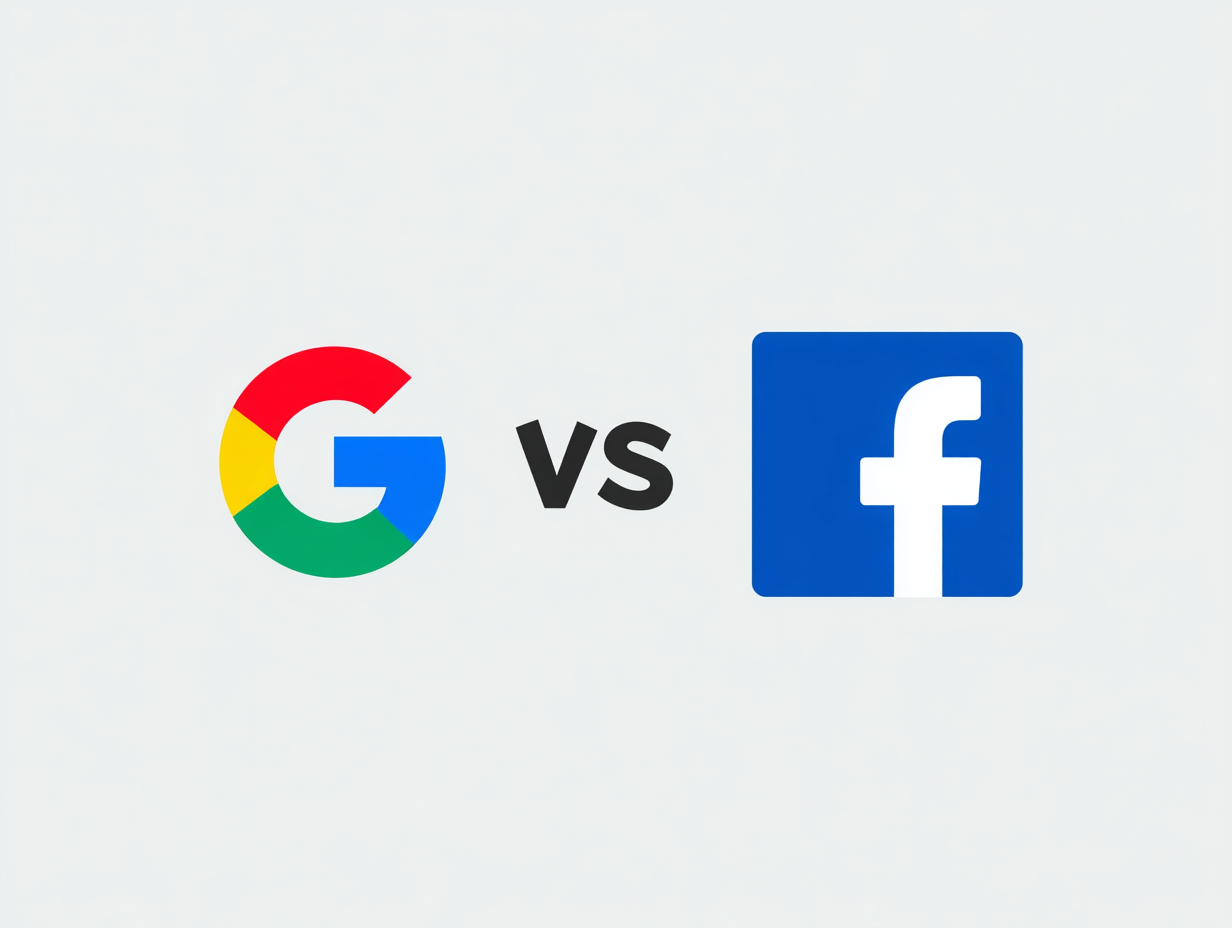Google Ads vs. Facebook Ads: Which Platform is Right for Your Business?

Google Ads vs. Facebook Ads: Which Platform is Right for Your Business?
In the world of digital advertising, two platforms stand out for their effectiveness and reach: Google Ads and Facebook Ads. Both are powerful tools for businesses looking to expand their online presence, drive traffic, and boost sales. However, they cater to different marketing goals and target audiences. Choosing the right platform depends on your business objectives, target audience, and the type of advertising strategy you want to implement.
Understanding Google Ads
Google Ads, formerly known as Google AdWords, is a pay-per-click (PPC) advertising platform that allows businesses to create ads that appear on Google search results pages and other websites across the Google Display Network. Here are some key benefits of using Google Ads:
Intent-Based Advertising: Google Ads targets users who are actively searching for products or services related to your business. This means you're reaching people with a clear intent to purchase or learn more.
Immediate Visibility: Your ads can appear at the top of search results, providing instant visibility and driving traffic to your website.
Measurable ROI: Google Ads offers detailed analytics, allowing you to track the performance of your campaigns and adjust them for better results.
Understanding Facebook Ads
Facebook Ads, on the other hand, is a part of Meta's advertising platform that allows businesses to reach users across Facebook, Instagram, and other platforms. Here are some key benefits of using Facebook Ads:
Targeted Demographics: Facebook offers robust targeting options based on demographics, interests, behaviors, and connections. This allows you to reach specific audiences that align with your business goals.
Visual Storytelling: Facebook and Instagram are visually driven platforms, making them ideal for businesses with strong brand identities or those looking to tell compelling stories through images and videos.
Long-Term Engagement: Facebook Ads can help build brand awareness and foster long-term customer relationships through repeated exposure to your brand.
Google Ads vs. Facebook Ads: Key Differences
Here are the main differences between Google Ads and Facebook Ads:
Targeting Strategy:
Google Ads: Focuses on intent-based targeting, using keywords to reach users actively searching for specific products or services.
Facebook Ads: Uses demographic and interest-based targeting, allowing businesses to reach specific audiences based on their interests, behaviors, and connections.
Ad Placement:
Google Ads: Ads appear on Google search results pages and the Google Display Network.
Facebook Ads: Ads appear on Facebook, Instagram, and the Audience Network.
Ad Formats:
Google Ads: Primarily text-based ads and responsive ads.
Facebook Ads: Offers a variety of formats including images, videos, carousel ads, and stories ads.
Cost:
Google Ads: Generally more expensive per click.
Facebook Ads: Often less expensive per click.
Objective:
Google Ads: Ideal for immediate conversions and direct sales.
Facebook Ads: Better suited for building brand awareness, engagement, and driving long-term customer relationships.
Which Platform is Right for Your Business?
For Businesses Focused on Immediate Conversions:
Google Ads is ideal if your goal is to drive direct sales or conversions. It targets users actively searching for what you offer, providing immediate visibility and a clear path to purchase.
For Businesses Building Brand Awareness:
Facebook Ads is better suited for businesses looking to build brand recognition, engage with their audience, and drive long-term customer relationships. Its robust targeting options allow you to reach specific demographics and interests.
For Businesses with Both Goals:
Consider using both platforms. Google Ads can drive immediate conversions, while Facebook Ads build brand awareness and foster engagement. This dual approach can provide a comprehensive marketing strategy that covers both short-term and long-term goals.
Conclusion
Choosing between Google Ads and Facebook Ads depends on your business objectives and target audience. Both platforms offer unique strengths that can be leveraged to achieve different marketing goals. By understanding the strengths of each platform and aligning them with your business needs, you can create effective advertising campaigns that drive real results.
At Savant Marketing, we specialize in crafting tailored strategies that maximize the potential of both Google Ads and Facebook Ads. Whether you're looking to boost sales, build brand awareness, or engage with your audience, our team can help you navigate these platforms and achieve your marketing goals. Contact us today to learn more about how we can help your business thrive online!
Kenneth Rodriguez
Author